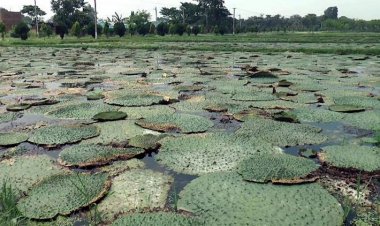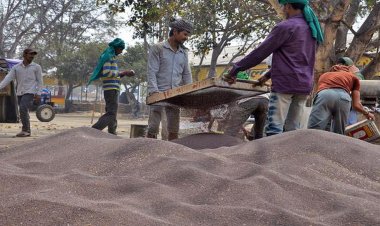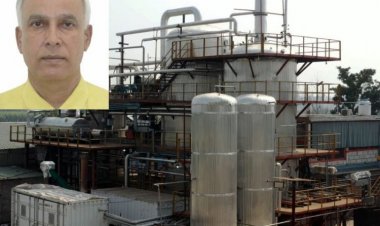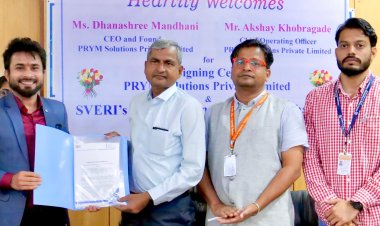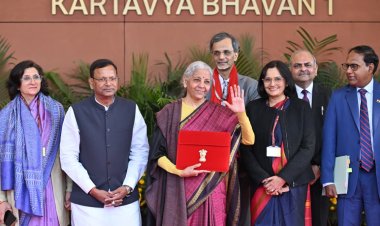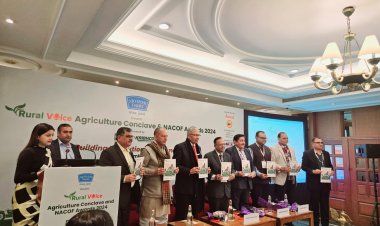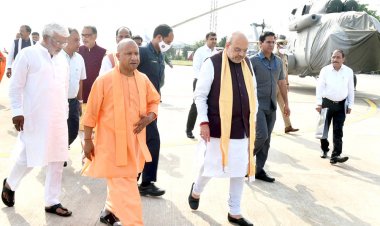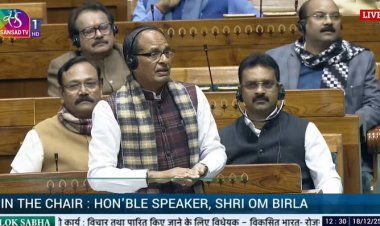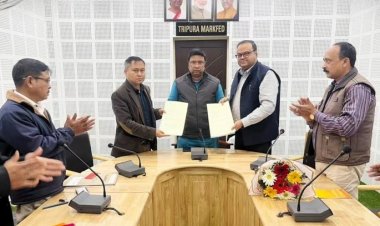'Agenda for Rural India': Issues of life and livelihood of rural community discussed at Bhubaneswar brainstorming session
A brainstorming event was held in Bhubaneswar to address the question of ‘how should the development agenda for Rural India be framed’. The two-day meet 'Agenda for Rural India - Bhubaneswar' was participated by Rural Voice, Socratus Foundation and Livelihood Alternatives. The event involved diverse rural stakeholders from over 20 districts of Odisha, including farmers, students, women's SHGs, small entrepreneurs, rural journalists, artisans, teachers, FPO members and migrants.
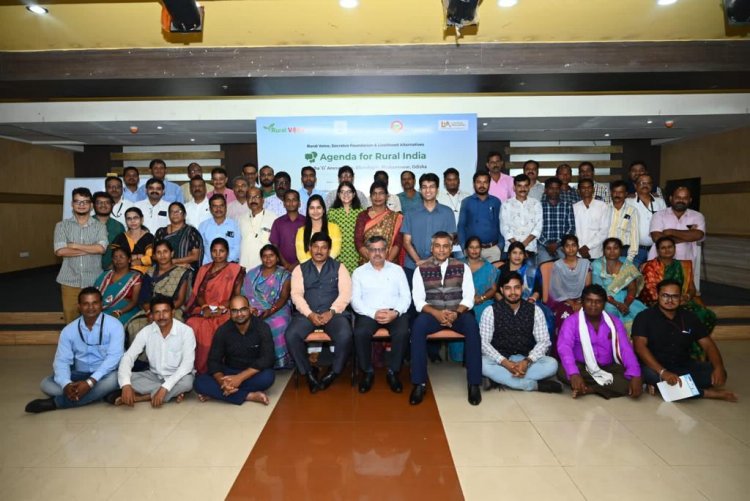
Bhubaneswar. A brainstorming event was held in Bhubaneswar to address the question of ‘how should the development agenda for Rural India be framed’. The two-day meet 'Agenda for Rural India - Bhubaneswar' was participated by Rural Voice, Socratus Foundation and Livelihood Alternatives. The event involved diverse rural stakeholders from over 20 districts of Odisha, including farmers, students, women's SHGs, small entrepreneurs, rural journalists, artisans, teachers, FPO members and migrants.
On the first day of the meet on August 18, participants discussed and deliberated on a multitude of issues they face as rural citizens. They also lucidly presented their aspirations for their respective villages and the kinds of policies they would like to see implemented.
The highlight of the second day was a panel discussion led by eminent bureaucrats and experts, and attended by the rural participants. The objective of the discussion was to enable a dialogue between policymakers and the rural citizens for whom policies are made.
The panellists included retired IAS officer Jugal Mohapatra, who was Chairman of NABARD Financial Services (NABFINS), Dr. Mitali Chinara – Professor (Economics), Utkal University and Member of OBC Commission, Odisha, Harvir Singh, Editor-in-Chief, Rural Voice, and Sambit Tripathy, Founder, Livelihood Alternatives. The participants through a deliberative process and by way of group activities identified a set of issues which concerns rural life and living. They articulated their aspirations as well.
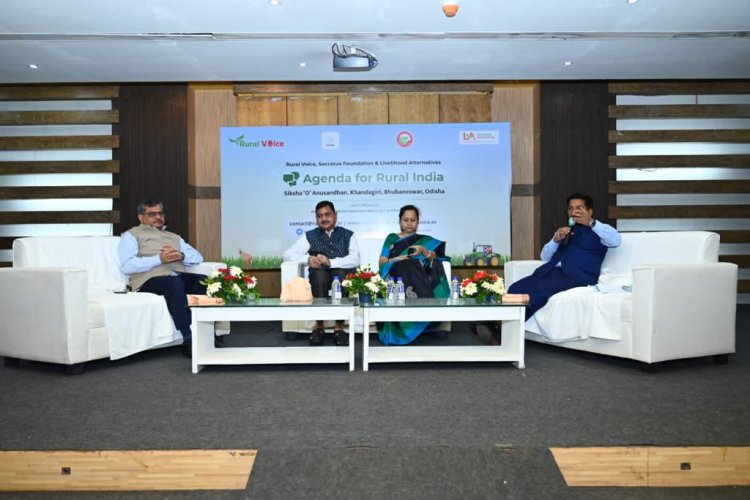
Panelists put their views during a session at 'Agenda For Rural India'.
The deliberations focussed on drinking water and irrigation facilities, overuse of chemicals, lack of proper remuneration for crops as intermediaries reduce the price realisation for farmers, lack of storage facilities like warehouses for produce, decline of indigenous breeds of cattle, wild animals destroying crops, and lack of warehouses for storage.
Climate change, soil erosion, child labour, bonded labour, drug/alcohol problem, exploitation of tribals, women’s safety, low quality of education, skilling and vocational training lacking were other salient features of the discussion. There were discussions on issues like corruption in government schemes like NREGA and non-implementation of certain schemes.
Aspirations like addiction-free villages with access to clean drinking water and irrigation, and poll promises such as drinking water and irrigation facilities in all villages, regular and uninterrupted electricity supply, with free electricity for farmers, issues related to education and health, besides climate change, encouragement to cottage industries and women empowerment through skill development were other key topics.
Creation of employment opportunities in villages to stop labour migration and promoting farmer’s education through training programs, introducing modern technology such as drip irrigation and rainwater harvesting and providing market linkages were highlighted.
The panels dealt with various issues ranging from farm laws and their impact, affirmative action, corruption and maladministration and the like. The panelists discussed various issues concerning rural hinterland, with reference to the issues related to Odisha.
While Jugal Mohapatra elaborated on his views on developmental issues of the last four decades connected with development, agriculture and corruption, Dr Chinara focussed on the developmental imperatives and issues of inclusivity.
EiC Harvir Singh discussed the nuances of the proposed farm laws and provided a comparative national perspective. The lively event was part of a series of convenings being organised by Rural Voice and Socratus Foundation across rural India to address the unique challenges faced by rural communities in the country.
These events aim to address the urban-rural divide and enable rural stakeholders to voice their opinions, promoting sustainability and inclusivity in rural development. Through dialogue and collaboration, there is a hope to develop a comprehensive rural agenda that addresses the needs of these communities. The aim is to share the compiled insights from these convenings with policymakers and experts at the national level.



 Join the RuralVoice whatsapp group
Join the RuralVoice whatsapp group


















